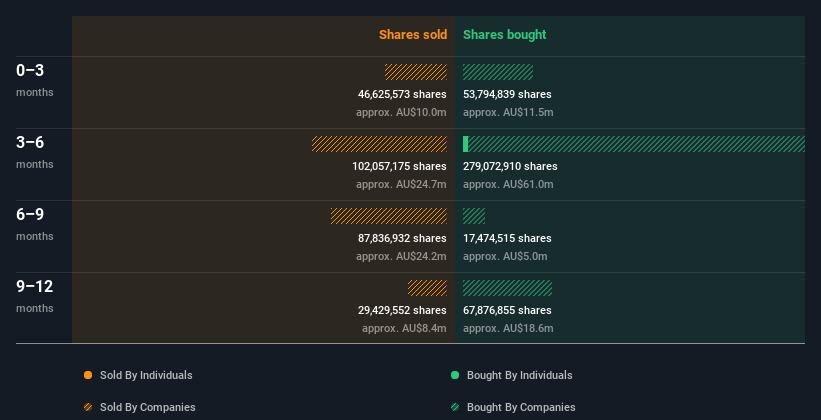Cooper Energy Limited (ASX:COE) insiders placed bullish bets worth AU$902k in the last 12 months
When a single insider purchases stock, it is typically not a major deal. However, when multiple insiders purchase stock, like in Cooper Energy Limited's (ASX:COE) instance, it's good news for shareholders.
While insider transactions are not the most important thing when it comes to long-term investing, logic dictates you should pay some attention to whether insiders are buying or selling shares.
See our latest analysis for Cooper Energy
The Last 12 Months Of Insider Transactions At Cooper Energy
In the last twelve months, the biggest single purchase by an insider was when MD & Executive Director David Maxwell bought AU$710k worth of shares at a price of AU$0.24 per share. That means that an insider was happy to buy shares at above the current price of AU$0.18. Their view may have changed since then, but at least it shows they felt optimistic at the time. We always take careful note of the price insiders pay when purchasing shares. As a general rule, we feel more positive about a stock if insiders have bought shares at above current prices, because that suggests they viewed the stock as good value, even at a higher price.
Cooper Energy insiders may have bought shares in the last year, but they didn't sell any. Their average price was about AU$0.22. These transactions suggest that insiders have considered the current price attractive. The chart below shows insider transactions (by companies and individuals) over the last year. If you want to know exactly who sold, for how much, and when, simply click on the graph below!
There are always plenty of stocks that insiders are buying. So if that suits your style you could check each stock one by one or you could take a look at this free list of companies. (Hint: insiders have been buying them).
Insider Ownership Of Cooper Energy
Many investors like to check how much of a company is owned by insiders. I reckon it's a good sign if insiders own a significant number of shares in the company. Insiders own 1.8% of Cooper Energy shares, worth about AU$8.7m, according to our data. We do note, however, it is possible insiders have an indirect interest through a private company or other corporate structure. Whilst better than nothing, we're not overly impressed by these holdings.
So What Does This Data Suggest About Cooper Energy Insiders?
The fact that there have been no Cooper Energy insider transactions recently certainly doesn't bother us. But insiders have shown more of an appetite for the stock, over the last year. While we have no worries about the insider transactions, we'd be more comfortable if they owned more Cooper Energy stock. While we like knowing what's going on with the insider's ownership and transactions, we make sure to also consider what risks are facing a stock before making any investment decision. Every company has risks, and we've spotted 1 warning sign for Cooper Energy you should know about.
But note: Cooper Energy may not be the best stock to buy. So take a peek at this free list of interesting companies with high ROE and low debt.
For the purposes of this article, insiders are those individuals who report their transactions to the relevant regulatory body. We currently account for open market transactions and private dispositions, but not derivative transactions.
Have feedback on this article? Concerned about the content? Get in touch with us directly. Alternatively, email editorial-team (at) simplywallst.com.
This article by Simply Wall St is general in nature. We provide commentary based on historical data and analyst forecasts only using an unbiased methodology and our articles are not intended to be financial advice. It does not constitute a recommendation to buy or sell any stock, and does not take account of your objectives, or your financial situation. We aim to bring you long-term focused analysis driven by fundamental data. Note that our analysis may not factor in the latest price-sensitive company announcements or qualitative material. Simply Wall St has no position in any stocks mentioned.
Join A Paid User Research Session
You’ll receive a US$30 Amazon Gift card for 1 hour of your time while helping us build better investing tools for the individual investors like yourself. Sign up here

 Yahoo Finance
Yahoo Finance 
